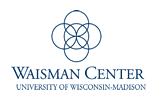December 19, 2017

|
| Download |
|
|
Purpose:
The purpose of this FAST Project application was to expand on our study outcomes to assess differences between former LEND trainees and comparison peers (COMPs) on selected core LEND competencies and outcomes. Our goal was to examine the impact of LEND training outcomes and on the knowledge, attitudes, and skills of LEND trainees and COMPs two years after completion of LEND training. While we already had NIRS data for these 2 groups; this project sought to add to the core set of NIRS questions to enhance our understanding of the impact of LEND training. This project sought to build on the initial study by including both the development of a new survey to assess the impact of LEND training on core competencies and outcomes for both groups and an additional time point of data collection.
Objectives Accomplished:
- Created a survey to assess knowledge, attitudes, and skills related to the core LEND competencies and/or clinical, research, teaching, and advocacy outcomes.
- Administered our survey to 2015 LEND graduates and comparison peers using REDCap software for data collection.
- Examined group differences between former LEND trainees and COMPs on outcomes and knowledge, attitudes, and skills related to the LEND core competencies.
- Survey creation is typically quite challenging, however, creating a survey that can effectively measure key outcomes of LEND training proved particularly challenging. The development of the LEND Outcomes Follow-Up Survey took longer than expected, but resulted in a set of robust questions that differentiate between LEND trainees and comparison peers. We chose to take more time to develop a better survey rather than stick to our anticipated timeline.
- After testing an initial set of questions in our first pilot, we found limited variance in responses to questions; trainees who had not participated in LEND training reported high levels of competency on the questions that we created. This pilot led us to pursue expanding our questions to focus on evaluating clinical, research, teaching, and advocacy outcomes in a more nuanced way.
- Measuring the impact that LEND training has on trainees' career trajectories is a high priority for the LEND network in the current fiscal and political climate. Domains that suggested no differences might be highlighted to establish best practices. Our work has shown this approach is feasible and not expensive in terms of direct research costs or personnel expenses. Similar training programs
can learn from these results which areas to emphasize with training and best practices, and build on training experiences that reinforce these skills.
Primary Contact:
Lauren Bishop-Fitzpatrick | [email protected]